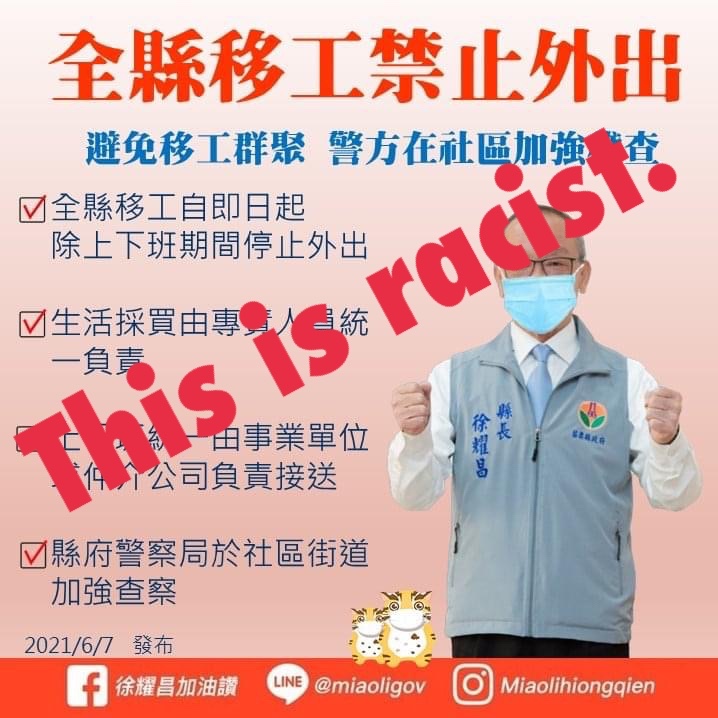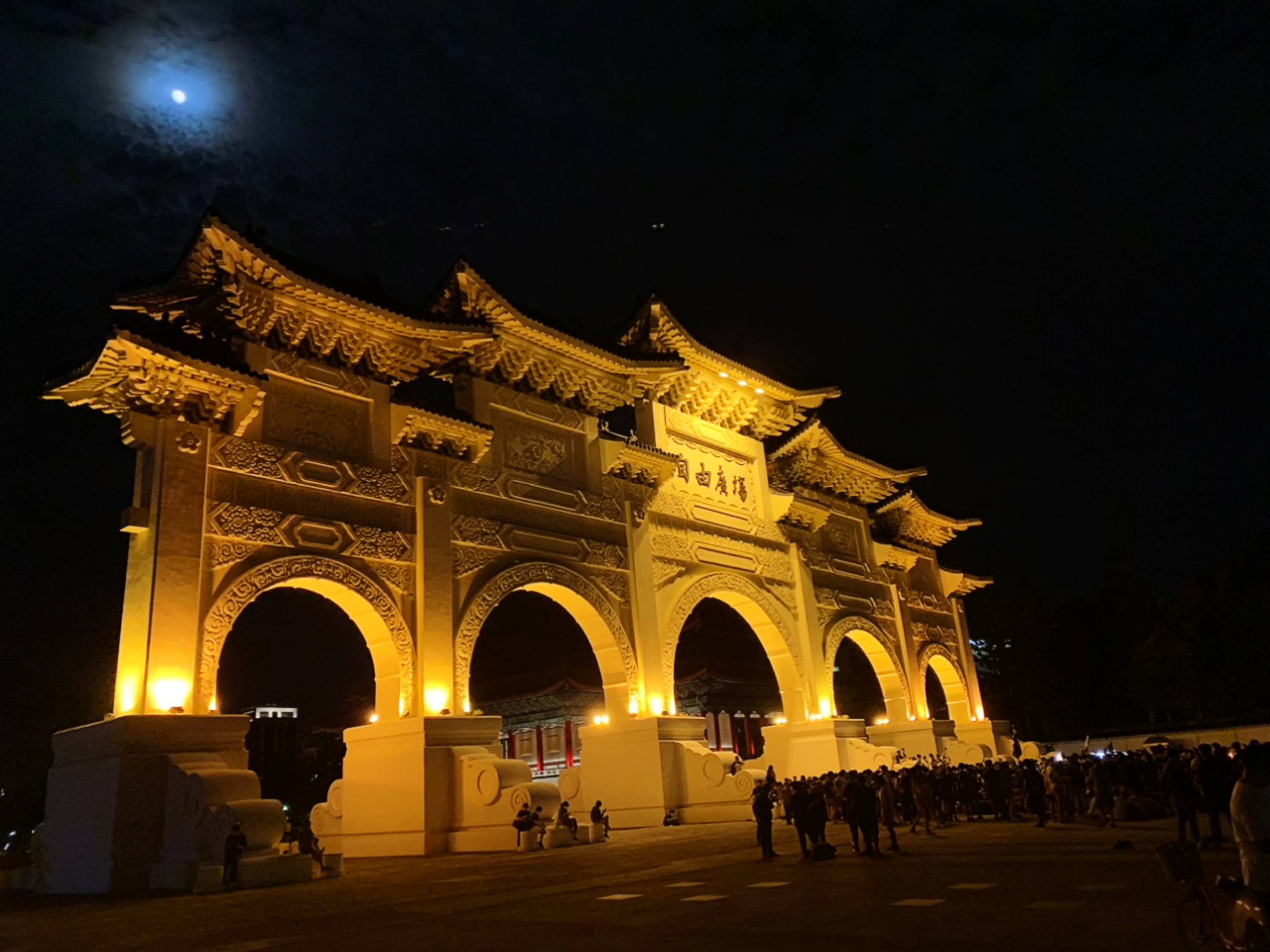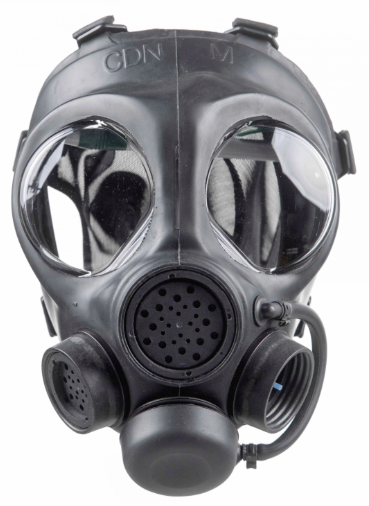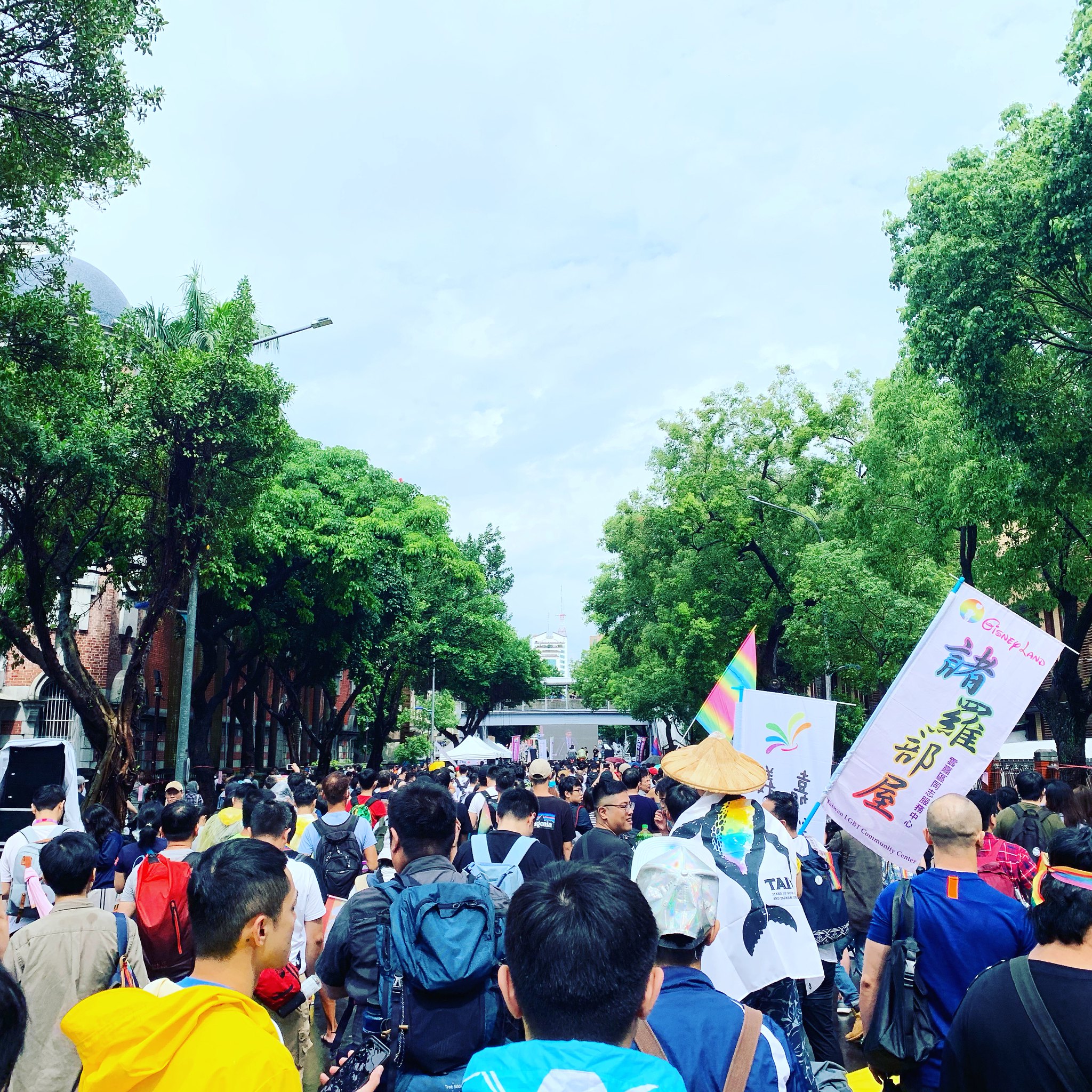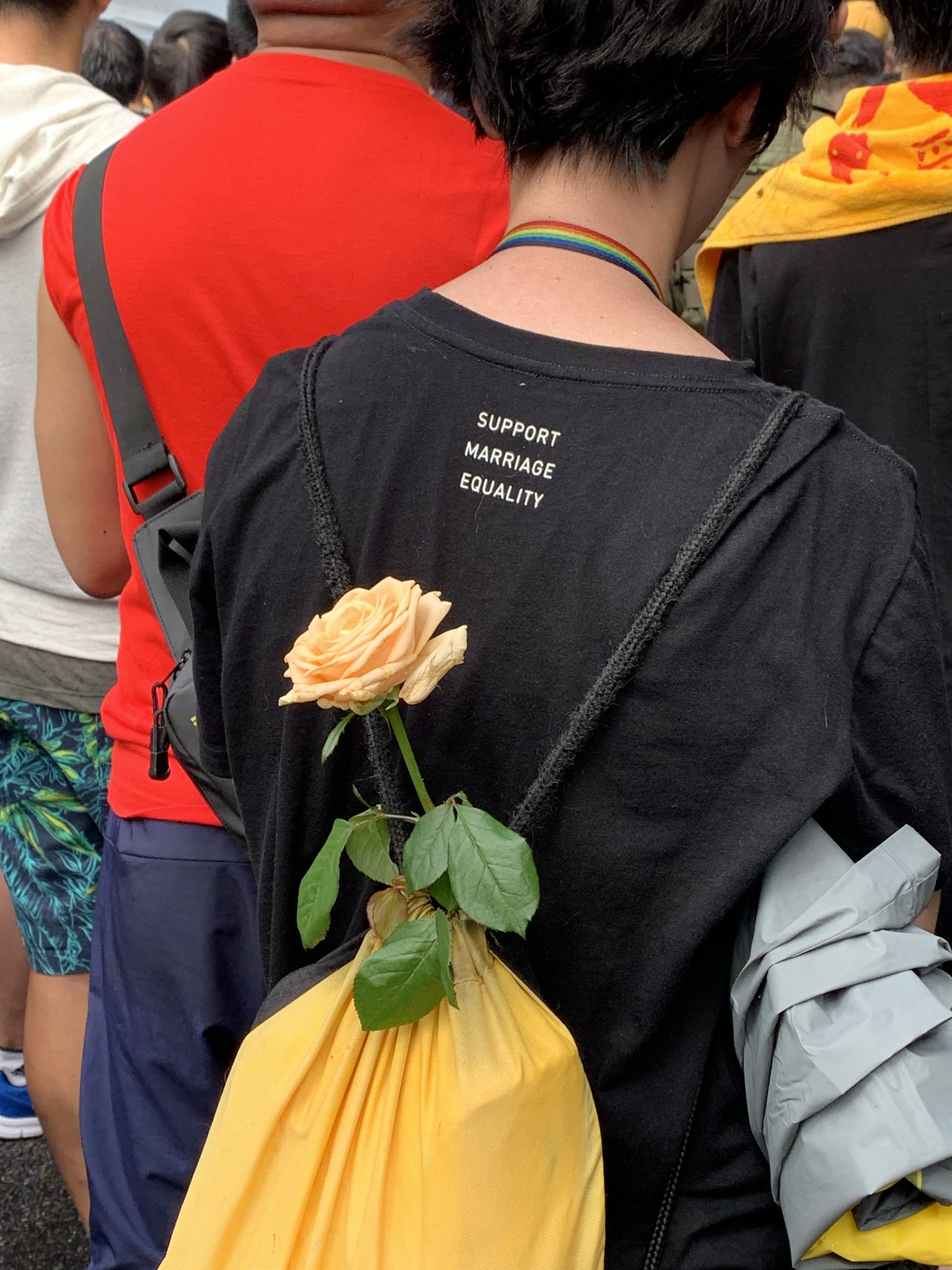
This is not because I think growing a backbone to actually stand for what one believes in is a bad thing, or that those supposed "Western values" are in and of themselves self-serving and morally vacant. It's because I don't think the values at stake here -- things like self-determination, human rights, freedom of expression -- are Western. They're human, and the West often doesn't embody them, or claims to and then abdicates all responsibility for living by them. More often than people realize, they take root far from the West, and are better (albeit still imperfectly) implemented in their new homes.
How do I know this? I live in Taiwan.
Before we get into that, however, let's look at where critics do make a good point. From Aditya Chakrabortty's column in The Guardian:
The Ukrainians are fighting for “our” freedom, it is declared, in that mode of grand solipsism that defines this era. History is back, chirrup intellectuals who otherwise happily stamp on attempts by black and brown people to factcheck the claims made for American and British history.To hold these positions despite the facts of the very recent past requires vat loads of whitewash. Head of the European Commission, Ursula von der Leyen, claims Vladimir Putin has “brought war back to Europe”, as if Yugoslavia and Kosovo had been hallucinations. Condoleezza Rice pops up on Fox to be told by the anchor: “When you invade a sovereign nation, that is a war crime.” With a solemn nod, the former secretary of state to George Bush replies: “It is certainly against every principle of international law and international order.” She maintains a commendably straight face....However corrupt and repressive his regime, Putin was tolerated by the west – until he became intolerable.
What's more, "the West" remains tolerant -- wary, but tolerant -- of Xi Jinping. While I am reasonably sure Chakrabortty himself doesn't support that given his previous work, a lot of people saying that the West is wrong -- not for only standing against authoritarianism now, but for standing against it at all -- do.
There's a logic fail, however, in going straight from "Western values" (whatever those are) to "the same countries who enthroned Putin" and now denounce him for doing exactly the sort of things they have done. To be clear, there is a line there; it's just not straight.
I'm going to make it about me for a hot minute, but I promise to try and keep it short.
I was very young when the Soviet Union fell. I remember celebrations and expectations. I remember talk of "economic revitalization". I recall, through my teens, worry that the re-integration into the global community of countries once behind the Iron Curtain was not going as well as hoped. I remember concern over the rising oligarchy, and by my college years, as professors talked about "oligarchy" as a thing that existed in faraway Russia, I was joining protests against the same sort of crony capitalist one-percentism (before the "one percent" was a linguistic thing) in my own country.
I remember anger -- my friends felt it too -- at the post-9/11 invasion of Iraq, and musings about why that dictator absolutely had to be taken out while we tolerated all sorts of other ones. We were frustrated that the government clearly differentiated between "good" and "bad" dictators. To us, they were all bad.
This isn't to say that growing up American, white and middle class didn't influence my beliefs, perceptions or how I'm treated in the world. Of course it did. It’s also not meant to highlight myself as some sort of awesome open-minded person; I have the same flaws and blind spots as most people.
It's unclear, even now, what the West could have done to mitigate the rise of Putin. Should we not have supported the fall of the USSR? It didn't look like a system functional enough to survive regardless. Done nothing at all? If we had sat on our hands, would the post-collapse turmoil have produced an autocrat worse than Putin? Helped create a system in which crony capitalism and oligarchy could not have taken root and enthroned a Putin? Sounds great! When you figure out how do reliably do that -- how to make the West be better than itself -- I would dearly like to know.
During those years, I was curious about the rest of the world, so I signed up to study abroad in India. Yes, this included a course in Indian political history, but I also got to see what democracy looked like in a non-Western country. It was illuminating, but being young, I didn't absorb as much as I should have.
After college, I wanted to learn more about other parts of Asia, so I went to China for a year as one of those annoying early-twenties idealists. This was a lesson in what life is like under a non-democratic government rights aren't just not guaranteed, they don't exist and can't be meaningfully fought for. It didn't affect me much directly -- after all, I'm a middle-class white woman -- but I witnessed it.
Then, still curious but realizing China wasn't a good fit, I wanted to know more about Taiwan, that elusive "rebel province" everyone in China would rant about if the topic went in that direction.
While far from perfect -- from the treatment of migrant workers to the hard red turn of the KMT, the party best known for brutal dictatorship -- Taiwan is more or less a country committed to these same values. It's not a Western country, so it's very hard to say from my home in Taipei that such values are inherently Western. Sure seems from this perspective that people around the world want the ability to live freely without harming others, participate in their own governance, and not get shot if they disagree with the people in charge.
In China, despite the CCP's truly horrifying repression, I met people with these same values. A disgruntled man who watched his best friend die at Tiananmen Square. A mother who fought for custody of her son in a deeply patriarchal and misogynist court system. An older woman who found peace in maintaining a shrine at the only major temple in town (which existed because it had been intentionally hidden by piles of trash and overgrowth during the Cultural Revolution). A young woman who expressed the desire to protest but knew she'd probably pay for it with her life. A peer who asked about all the things she tried to learn about Taiwan through a VPN -- same sex marriage in Taiwan? The Sunflowers? -- but couldn't, because the connection proved so bad that she could hardly read a thing. An Uyghur bookseller in Kashgar who refused to speak Mandarin and opened his shop at a time that made local sense, not the time the government in Beijing mandated. Two young Uyghurs who were very clear about what it meant to be who they are, under CCP rule.
With that in mind, what exactly does it mean to have "Western values"? I honestly don't know. We should fight for some things because they are right, not because they are Western; we should have a backbone because it is right, certainly not because it is Western (it isn't). Those values also demand we examine ourselves, our homes, and our own countries of origin.
I can't even say that these values necessarily originated in the West. I'm not going to sit here and explain Asian political and ethical philosophy at you because that feels orientalist, and I probably don't have to. Obviously, systems of thought originating in Asia which espouse free thought, critical thinking and self-determination exist.
Calling out "the West" for its hypocrisy in claiming to champion these same values while committing their own atrocities and historical whitewashing is important. Truly. In that, there is value in geographical labels.
Yet slapping those geographical labels on ideas that sprouted from universal desires can lead down another path: if everything "Western" is bad, and these values which many take to be universal are inherently "Western", then the values themselves are bad. It's possible to come to all sorts of conclusions from this. For example, if the West is standing together against Russia, then Russia must be somehow in the right (there are all sorts of ways to justify this -- NATO started the war, "denazification", "US-backed color revolution" -- each one of them more horseshit than the last).
Or that Western sanctions are hurting everyday Russians -- which is true, and I feel for them -- and therefore we should not only stop "provoking" Russia through NATO expansion, aiding Ukraine or sanctions, but merely wag our fingers at them sternly. Why? Because even though they're wrong, we're still the ultimate bad guys and you know, both sides are bad. Oh no, Ukraine is lost, too bad so sad, thoughts and prayers.
Or that because China may aid Russia and the West are the "bad guys", maybe China isn't so bad either. After all, their government talks about "the West" and how they don't want to be yoked by "Western values", and that sounds a hell of a lot like we've been saying about Western hypocrisy, maybe the CCP has a point!
If that's true (according to this logic), and this is about the hypocrisy and non-universality of "Western values", then all those countries which stand against China are in the wrong too. They're all democracies but it sounds wrong to say democracy is bad, so let's call it capitalism. Yes, that's it, they're decadent capitalists!
This, of course, makes Taiwan one of the bad guys -- after all, Taiwan is a liberal democracy that has shown support for Ukraine and is far friendlier with countries like Japan and the US than China -- and that's where it gets personal. I may not be Taiwanese, but those Chinese missiles are pointed at my house too and they shriek irredentist and revanchist garbage as hard as Russia, if not harder.
To commit to this path, of course, you either have to be a hard right-winger who has bought into the Trump worship of Putin the Strongman (most of whom only hate China because it threatens American dominance and calls itself "communist", rather than hating the CCP for all the logical reasons to do so). Or you have to be a certain kind of leftist who's decided that if both sides are bad, then both sides must be equally bad at all times -- or one side must always be worse and that side is always "the West".
In this bow to pro-imperialist, anti-democratic sentiment, the tankie left and the right wing are more or less the same. Yes, that's right, it's horseshoe time.
Neither one of them can seem to figure out who the actual bad guy is in this situation (spoiler alert: it's Putin). That one side is more concerned with power at the expense of democracy, and the other would rather debate the evils of NATO while letting Ukrainians and their democracy die doesn't matter. That one makes populist appeals to the middle America working class and the other calls them "the proletariat" doesn't matter. That one is anti-immigrant because of racism and the other claims the same anti-immigrant stance for "the workers" doesn't matter. That one insists Christian Capitalism is the Only True and Correct Path, and the other insists Communism Through Violence If Necessary (forced on people if they don't vote for it) is the Only True and Correct Path doesn't matter.
One is hearing their same rhetoric -- the Evil West -- echoed by genocidal autocrats. The other perhaps thinks we're engineering our own downfall through the evils of liberalism. One blames capitalism, the other progressive values.
It's all the same horseshit, though, leading to the same logical endpoint: Western democracy should fall (for whatever reason) in favor of their preferred method of control, fuck your values and your votes. To that end, Putin and Xi either are wrong but shouldn't be stopped because we're just as bad, or Putin and Xi are right, and we're the bad guys in this particular war.
Of course, to do this, both sides have to engage in whitewashing. The far right has to pretend the history of Western civilization is different than what it was. This is where Chakrabortty is right.
The far left have to engage in a tougher balancing act: standing for, say, LGBTQ+ allyship, while supporting Russia. This usually means lying about the treatment of LGBTQ+ people in Russia. Standing against genocide while standing with China, a country whose government engages in genocide. This is done through genocide denial: apparently only genocides committed by the West count. For this logic to work, China and Russia (!) have to be stronger on these issues as the West, or at least not markedly worse in the present day.
The only way out of this logic quagmire is through. How to find one's way through? Values -- universal ones. Which ones are universal? Hard to say, and sometimes inchoate, but look for whatever it is people are fighting for in different parts of the world. Of those movements, look for the ones that seek freedom rather than control. Self-determination rather than subjugation. Civic participation rather than the absolute power of one group. Nobody has all the answers, but it's a good place to start. Add to that critical thought: who is making this claim, and can it be credibly substantiated? Am I applying this standard to everyone, or only the sources I want to believe? You might still be wrong, but you're more likely to be closer to right doing this than by picking an ideology that sounds good and running with it.
The West is absolutely two-faced, and a lot of people supporting Ukraine right now are talking like they aren't the culprits. But that's not a 'values' problem, it's a hypocrisy one. You figure that out -- and who's talking out their ass and which side is worse in any given conflict -- by starting with critical thought. your own values, applied regardless of country, party or ideology. That's not a Western thing. That's a global thing.

